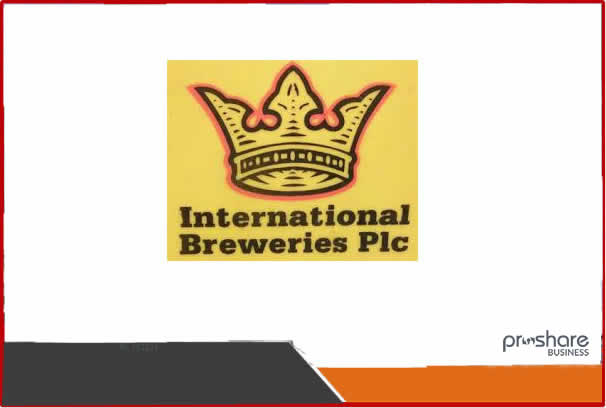IB PLC: ''Sales disappoint; cost efficiency worsens but operating cash flow strengthens'' - Chapel Hill Denham

International Breweries Plc (Intbrew) published its audited FY-19 yesterday. The results reflect a steeper decline in EPS to -N3.23 (from -N0.45 recorded in FY-18), worse than our forecast of –N2.15. We attribute the unimpressive outturn to the decline in revenue (-5.8% yoy in Q4-19) as well as a significant jump in cost of sales (+22.8% yoy in Q4-19). We note that Intbrew’s FY-19 results do not reflect the proceeds of the company’s N165bn rights issue, so we expect the impact to reflect in the company’s Q1-20 financial results.
What we like about the results
Net operating cash flow (NOCF) improved to N41.69bn (from –N30.94bn in FY-18), largely supported by a positive change in working capital. This was driven by favourable credit terms, as trade and other payables rose by 63.3% yoy to N88.19bn while trade and other receivables declined by 0.8% yoy to N27.80bn. Inventories, on the other hand, rose by 10.7% yoy to N21.98bn. Similarly, cash and cash equivalents rose by 83.2% yoy to N31.81bn.
Our concerns about the results
Revenue declined by 5.8% yoy in Q4-19 to N35.09bn, due to weak volumes on stiffer competition, particularly on the international premium brand, in our opinion. We suspect that revenue was dragged by weak Budweiser volumes, given the double digit growth in Heineken. Notably, Nigerian Breweries witnessed slight volume-driven revenue growth (+1.2% yoy) over the same period while Guinness Nigeria recorded a 4.3% yoy increase in sales in Q2-20 (October to December 2019). From a full year perspective, revenue expanded by 9.7% yoy to N132.35bn, slightly behind our forecast of N133.79bn.
Cost of sales jumped further in Q4-19, increasing by 22.8% yoy to N41.00bn, indicating a deterioration in Intbrew’s cost-to-sales ratio to 81.0% in FY-19 from 70.1% in FY-18. Decomposed, the increase in cost of sales was largely driven by raw material costs (+23.3% yoy to N33.75bn) as direct salaries (-62.5% yoy) and technical fees (-114% yoy) both declined, while depreciation increased (+68.3% yoy to N7.00bn).
Intbrew’s margins compressed further in Q4-19. Gross margin was negative at -16.9% (vs. 10.5% in Q4-18), operating margin at -28.6% (vs. +21.5% in Q4-18), EBITDA margin at -0.8% (vs. +33.1% in Q4-18) and net margin at -32.3% (vs. +8.3% in Q4-18). These declines were largely due to the weaker sales and higher cost of sales in Q4-19.
In FY-19, Intbrew’s gross debt rose by 21.9% yoy to N264.83bn (debt receipts of N307.26bn and repayment of N232.87bn) in FY-19, pushing the company’s net debt/EBITDA ratio to 28.54x (from 8.06x in FY-18) and net debt/equity ratio to 31.00x (from 5.53x in FY-18).
Valuation
Our rating and TP on Intbrew are currently under review.

